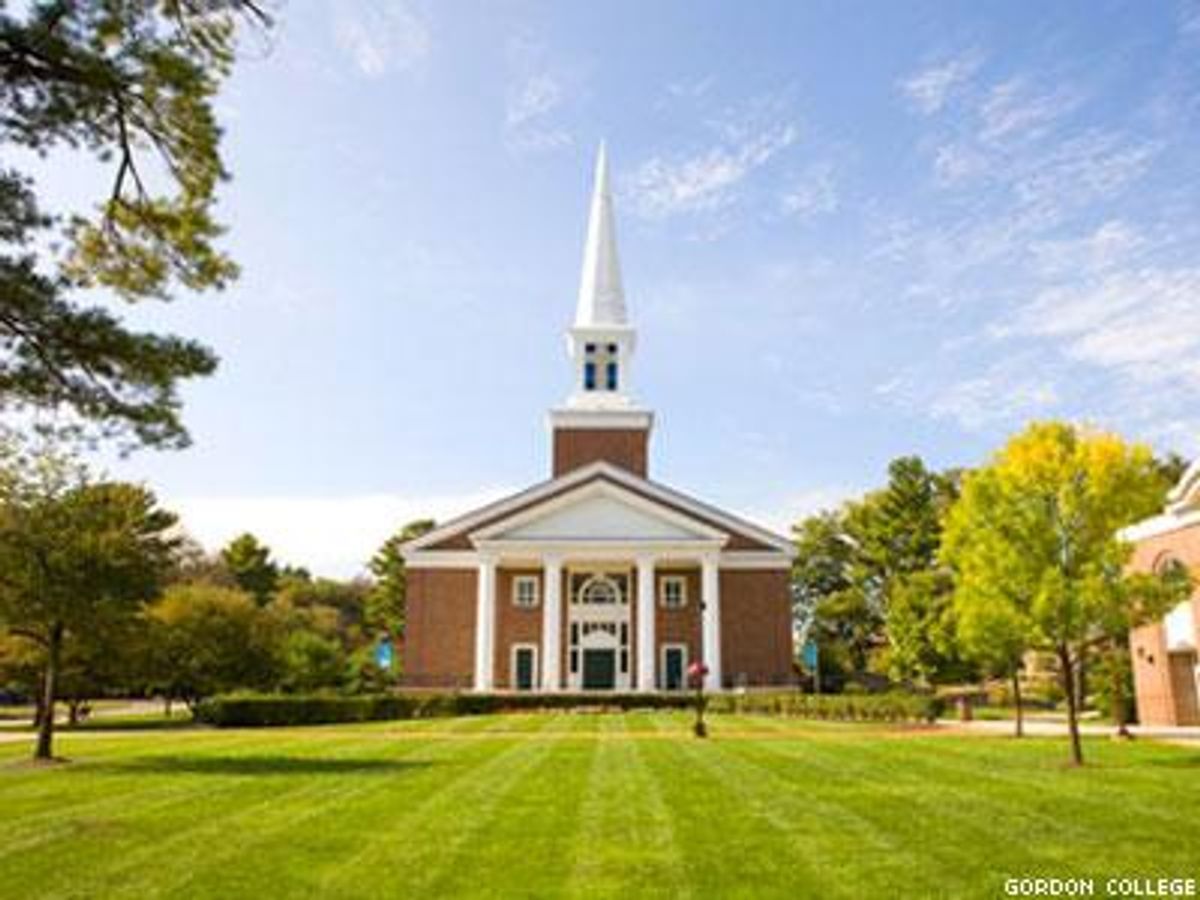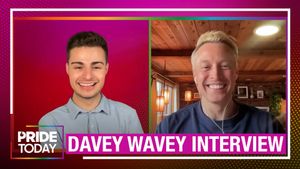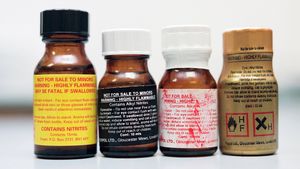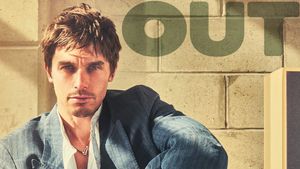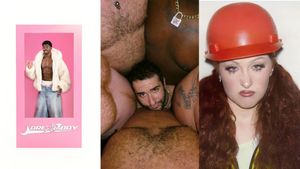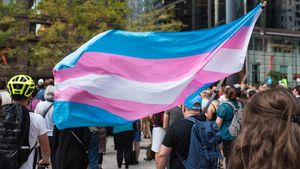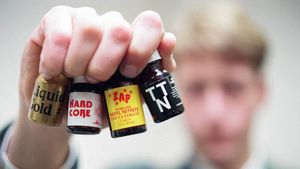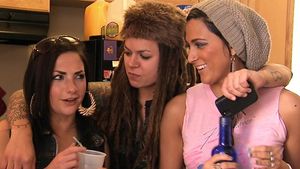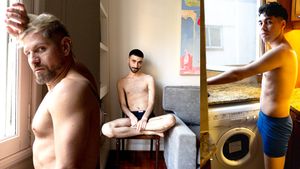An evangelical Christian college is a strange place for a gay man to be a student. It's an even stranger place for a gay man like me to have worked. Across the U.S., there are more than a hundred colleges and universities that ban homosexual activity as condition of employment and retain the right to fire or refuse employment to people who are openly lesbian, gay, bisexual, or transgender. Gordon College, my alma mater and former employer, is one of them.
Michael Lindsay, Gordon's president, was one of 14 faith leaders who recently wrote to President Obama asking for a religious exemption from his executive order banning anti-LGBT employment discrimination by federal contractors. His decision to enter the partisan fray of politics and religion with Gordon's name attached came as a shock to alumni, faculty, and students. A petition demanding he rescind the letter has generated nearly 3,000 signatures. A number of current students and faculty sent a letter to the White House saying that Gordon's president doesn't speak for them.
Gordon is far from a bastion of Christian fundamentalism. When I first stumbled upon Gordon's website as a prospective student, the phrase "Freedom Within a Framework of Faith" was emblazoned on its home page. It was a reassurance to me that Gordon was united around a common bond of Christian faith and also the values of intellectual curiosity and open inquiry. When I was a student, professors taught me that lifelong learning and civic engagement were fundamental responsibilities for committed Christians. The friends I made there, professors and students alike, helped me through times of depression, struggle with the silence of God, and hopelessness that my fight to reconcile my faith with my sexual orientation would ever end.
I have known that I was gay since age 12. For the first 25 years of my life, I hoped that through prayer, Bible study, and a brief stint in "ex-gay" therapy that I would find the desire for women or at least the strength to be celibate. When I was offered a job as an admissions counselor after graduation, my rationale was that if I was going to stay a Christian, I should work for the place that offered the best, though imperfect, expression of a Christianity that I had found. Over my three years as a Gordon employee, I realized regardless of my success in recruiting students to Gordon, articulation of Gordon's distinctiveness amid a sea of more conservative or prestigious colleges, and value as a staff member, I would always carry a fear of being outed and fired because of my sexual orientation. As long as I remained celibate and quiet about being gay, Gordon's employment guidelines reassured me that I wouldn't lose my job, but that did little to quiet my anxiety.
While traveling as an admissions counselor, I stopped in New York City to see friends of mine. After dinner, they asked me if I wanted to join them at a gay bar. When I walked in, I felt at home in way that I had never felt before. I saw people dancing to music I secretly enjoyed, talking with their friends, and enjoying a place that was made for them. In that moment I realized that I would always feel uncomfortable at Gordon.
The fact that I was gay and was coming to feel there was nothing wrong with that would put me at odds with my employer, regardless of my professional success, alumni status, or Christian faith. I spent the next year coming out to friends and looking for jobs, trying to build a new space to feel safe in recognition that my family, my alma mater, and a majority of the people I had known for my entire life would no longer accept me as an out gay man.
Three years after leaving Gordon, I no longer feel like a stranger at work, in my community, or in my own skin. In 2012 a group of my fellow LGBT and allied alumni started a group called OneGordon to provide support, visibility, and an alternative perspective to Gordon's exclusion of LGBT people. We are just a handful of the many people making sure that President Lindsay is held accountable for his signature on the letter and its impact on Gordon's reputation, academic community, and student body, which includes a number of LGBT students.
When I left Gordon as an employee, I also left behind my Christian faith. A Public Religion Research Institute report found that a third of millennials who are no longer religious say the religious communities' treatment of LGBT people was a significant factor in why they left their faith.
There are LGBT Christians who remain part of evangelical communities and I commend them for it. Through OneGordon, I have heard from a number of alumni who are part of affirming churches and some who even pastor them. But for so many others, President Lindsay's request to continue to deny employment and fire people simply because of their sexual orientation demonstrates why they are no longer religious. The college that nurtured their faith, taught them to question boldly, and pursue truth excludes them because they are LGBT. As a result, Gordon's claims about the truth of Christianity are undermined.
As an alum of Gordon, I look forward to the day when all alumni, students, and employees are welcome as full members of the Gordon community, regardless of their sexual orientation or gender identity. Homecoming is one of the high points in the year for college alumni. Perhaps if LGBT people were fully welcome at Gordon, their homecoming would not only be to Gordon but also to the faith communities they had to leave behind.
PAUL O. MILLER is a 2008 graduate and former staff member of Gordon College. He is one of the cofounders of OneGordon, an association of LGBT and allied alumni, faculty, staff, and students and a commissioner with the GLBT Commission of Cambridge. He is a resident of Cambridge, Mass., and works in fundraising for an LGBT nonprofit in Boston.
